EX-TRAHERE MATRIX
FROM COLONIALISM TO CLIMAT (IN) JUSTICE
--- NEWS --- Our theatre performance project "EX-TRAHERE MATRIX" is ON TOUR: at the Hof-Festspiele in Berlin Kreuzberg. On 05.07.24 at 20:00 --- Afterwards our ensemble from Lomé will perform in Marburg. On 10.07.24 at 19:30 --- We continue our journey to "Highdigenous Live! The Festival of Amazement" in Paderborn. On 12.07.24 20:00 --- NEWS --- Click here to see all upcoming events and for more informations!
A PERFORMANCE LECTURE
With the project "The Ex-Trahere Matrix" we are spanning the arc from colonialism to climate justice. We are working with artists and activists from Togo, exploring the traces of colonialism and climate change on the ground. The aim is to let the local people speak for themselves, so that they do not become supporting characters in the drama of climate justice, which directly affects them.
On the one hand, Togo is strongly affected by climate change; on the other hand, German colonial history has hardly been dealt with. The project enables a creative, critical exchange and dialogue - which is at the same time a contemporary historical look back and forward. In this way, we want to bring the topic "Ex-trahere Matrix - from colonialism to climate justice" into the light of the media public in Togo and Germany.
The Extrahere Matrix is a hybrid of theatre, symposium and film documentary, a performance lecture.
"The current acceleration of climate change is not just an unintended consequence of industrialisation. The climate has always been a project of the colonial powers, who have always worked to shape it." (Eyal Weizman, architect and writer)
How are colonialism and the climate crisis connected? And why is the topic so important - for the people in former German colonies but also for the people in Germany?
14.12.23 Premiere in Togo at Denyigba Culture de Lomé / 15.12.23 Goethe Institut Lomé / 16.12.23 Centre Culturel Fiohome de Lomé / 17.12.23 Centre Culturel Gododo
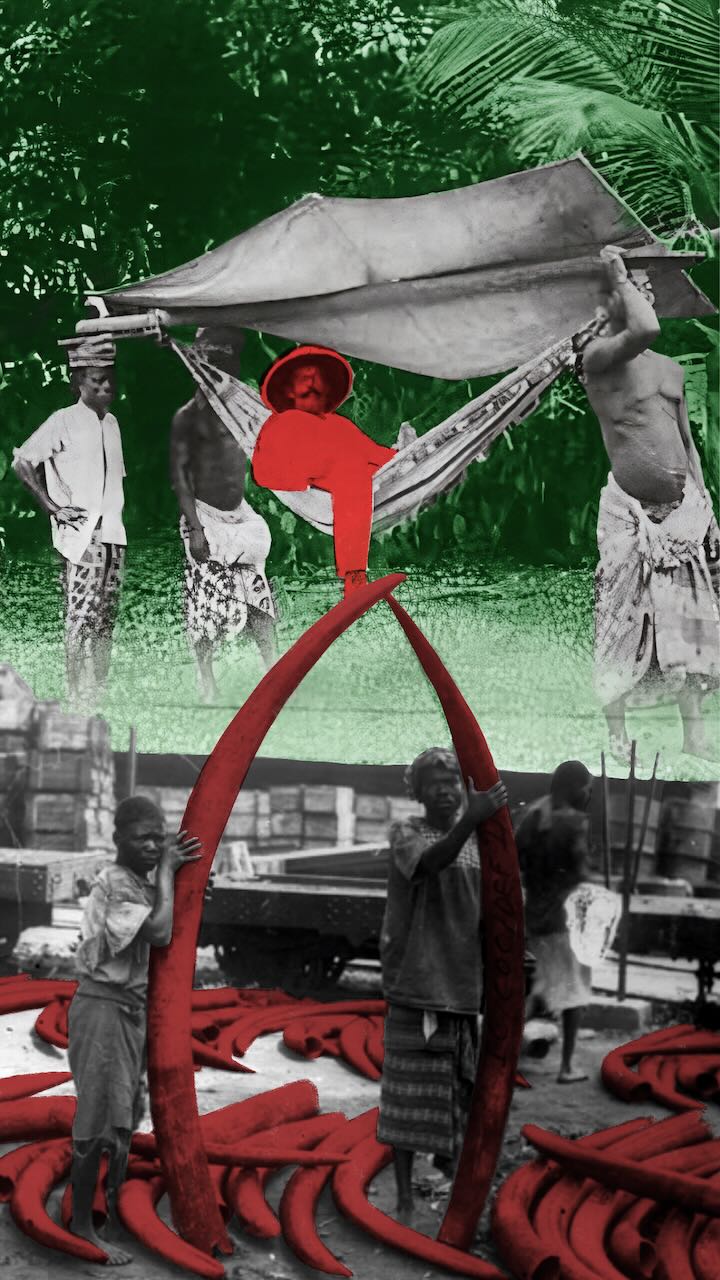
Photos: from the picture archive of the German Colonial Society / Artworks & Collages: Maria Lua Gomes Barrocas
Exploitation of people and nature
The climate crisis is the result of power and exploitation relations, both between the global North and the global South and between humans and nature. The world as we know it today is based on imperialism, the scientific revolution and the conquest of the world after the voyages of discovery by Columbus and Co. at the end of the 15th century.
This was followed by the oppression and exploitation of the world by the Europeans. Slavery, racism, imperialist ideologies, culturalism, capitalism, neo-colonialism. Their common ground is extractivism, however fiercely national interests have opposed different European countries in the past. Extractivism (Latin ex-trahere "to draw out"; extractum "that which is drawn out") acquired the capital that forms the architecture of our wealth and North/South inequality to this day.
Nature tells the story of colonialism: on every continent, mangroves, grasslands, rainforests and wetlands were cleared to make way for quarries, plantations, ranches, roads and railways. As historian Richard Drayton explains, imperialism - the expansion of empire - was "a campaign to extend an ecological regime: a way of living in nature". Whole landscapes had to be subjected to control and exploitation. Overuse, pollution and deforestation were the norm. Colonies were designed to maximise and facilitate exploitation. Profit was the compass. The land was surveyed, demarcated, parcelled and mapped. The methods were always the same: confiscate, expropriate, exclude, expel, extract and exterminate. Nature was a blank slate for the colonisers to reshape and harness. Where colonisers arrived, maps were drawn, inhabitants displaced and new methods of production introduced.
Practices of collective land management were shattered as models of individual ownership were introduced. New courts and laws governed the area, handing over land to concession companies and settlers. Long-term residents were now "squatters" on their own land. Under the supervision of whips and watches, labourers were forced to work the earth: hoeing, digging, breaking, cutting, harvesting, hauling, carrying and carting. Over the centuries, forced labour has taken various forms, from formal slavery, to serfdom, to debt bondage.
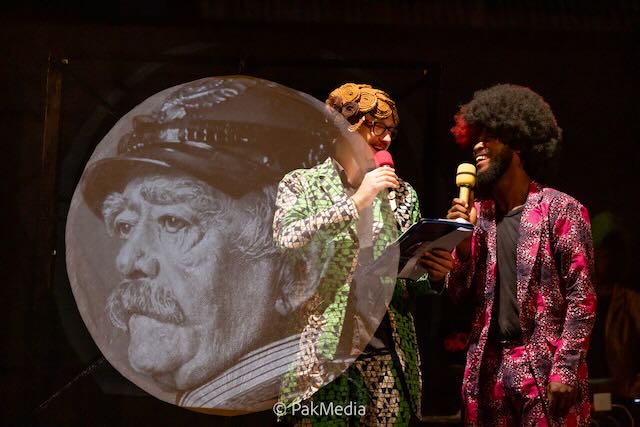
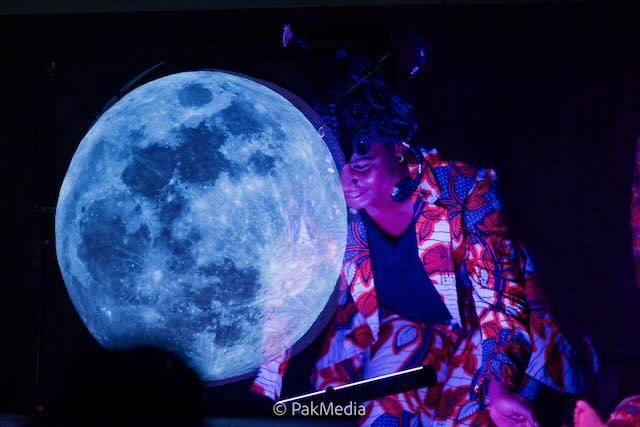
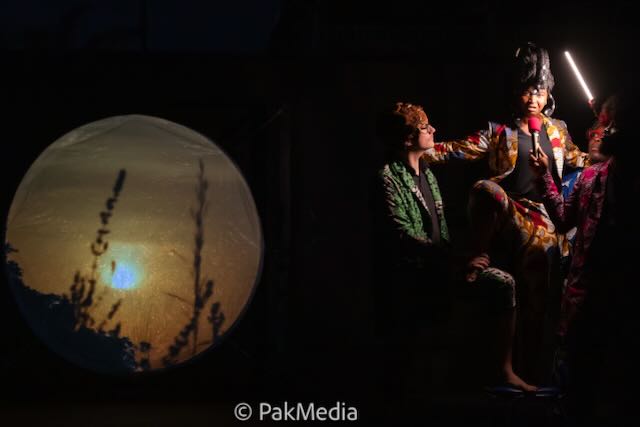
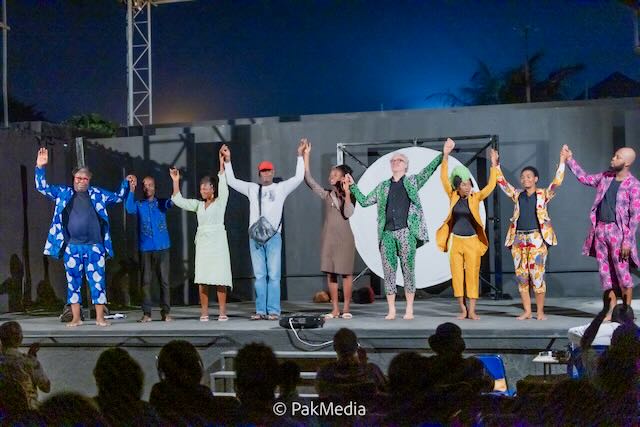
THE LANDSCAPE CHANGES ... THE STORY REMAINS
TAKARA Pierrette / acting & HOUNOU Ségnon / acting & WILSI Akpénè / writing / directing / acting & VILELA NEUMANN Jens / writing / directing / acting & ADJETEY Diane / DJ Diponne music
PARAISO Kokou / assistant & SONABEY Godwin stage design & RICKLY Robert stage design & YDA Style costume
APEDO Amah teacher-researcher & NYANOO Koffi assistant organisation & DJOBO Roukeya communication & GOKA Mawuli activist NGO: JVE Lomé & SAIBOU Awa activiste NGO: OPED Lomé & MONDE Alexandre storyteller & AZAMEDE teacher-researcher & MENSAH Gaskin Kpoti tourist guide Agbodrafo
Exploitation and climate crisis
The United Nations (UN) estimates that more than 40 percent of all global conflicts in the last 60 years have been linked to the extraction and trade of raw materials. Based on these figures, it quickly becomes clear that Germany, like other industrialised nations, is living ecologically at the expense of other countries.
The term climate colonialism has therefore been making the rounds for some years. According to philosopher Christoph Rehmann Sutter, this is based on a development model that has created prosperity in the industrialised countries. But this is only possible because it is at the expense of less developed countries. The rich countries outsource burdens to the countries with smaller footprints.
Africa is the continent that will feel the effects of climate change the most, even though studies show that it has contributed the least to the crisis.
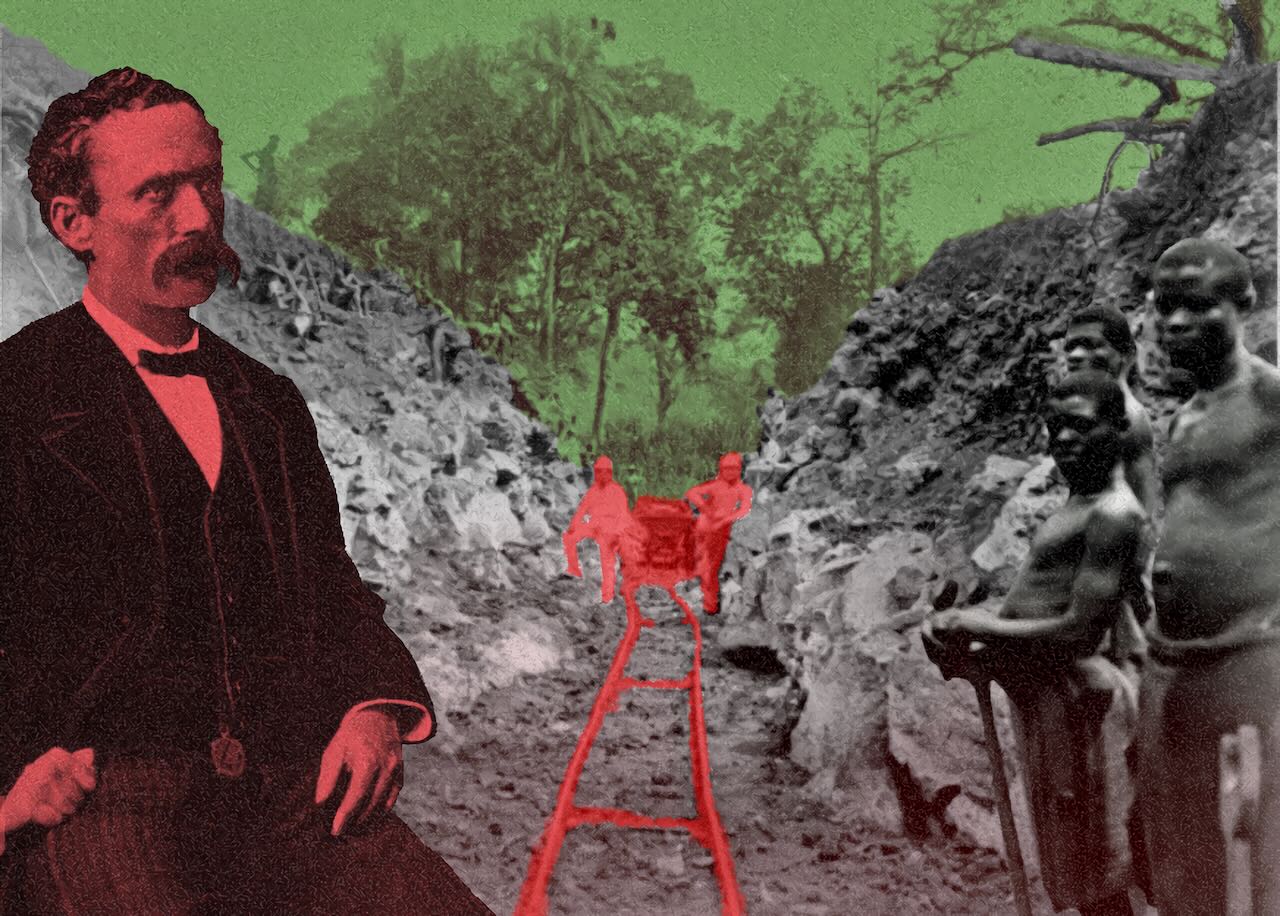
Photos: from the picture archive of the German Colonial Society / Artworks & Collages: Maria Lua Gomes Barrocas
The continent is already suffering from extreme weather events and changing rainfall patterns linked to climate change, leading to droughts and floods. With a rapidly growing population, this has implications for food supply and poverty, leading to migration and conflict. Many rich countries seem to expect Africa to make the leap to clean technologies for energy production, but are not really willing to make the necessary investments. Vulnerable and poor African communities need help to adapt to the inevitable impacts of climate change - but their voices also need to be heard, because there is a lot of traditional knowledge and expertise on the ground that has so far been ignored. Policies are often implemented without the involvement of local communities and without their consent.
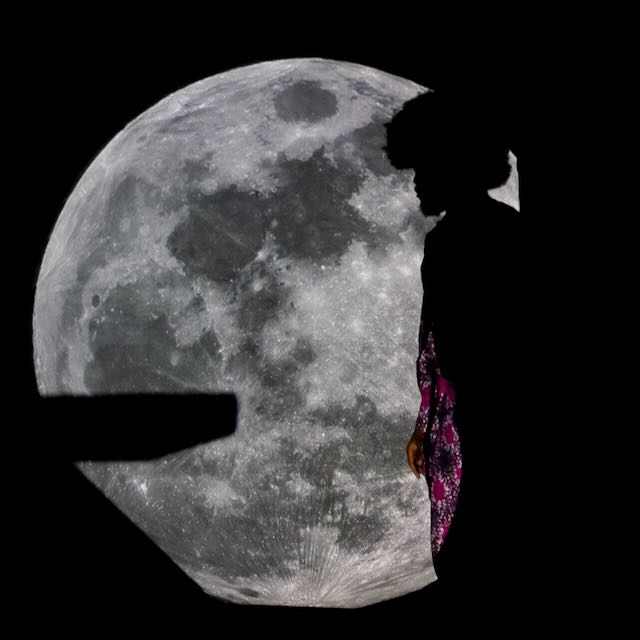
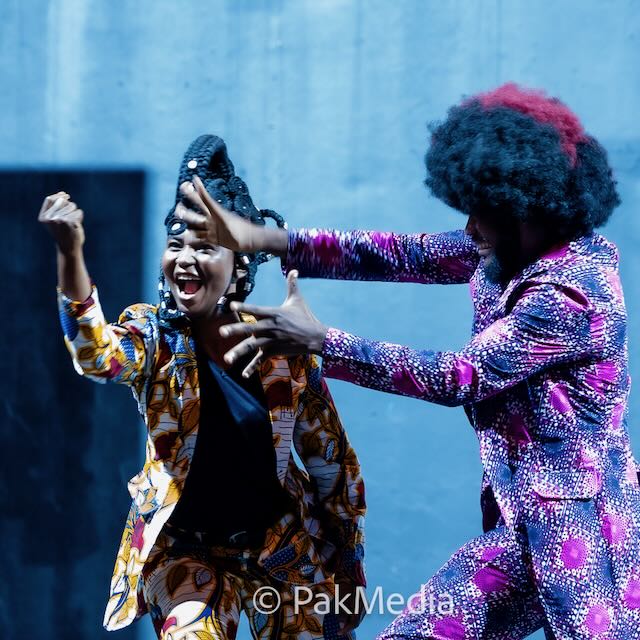
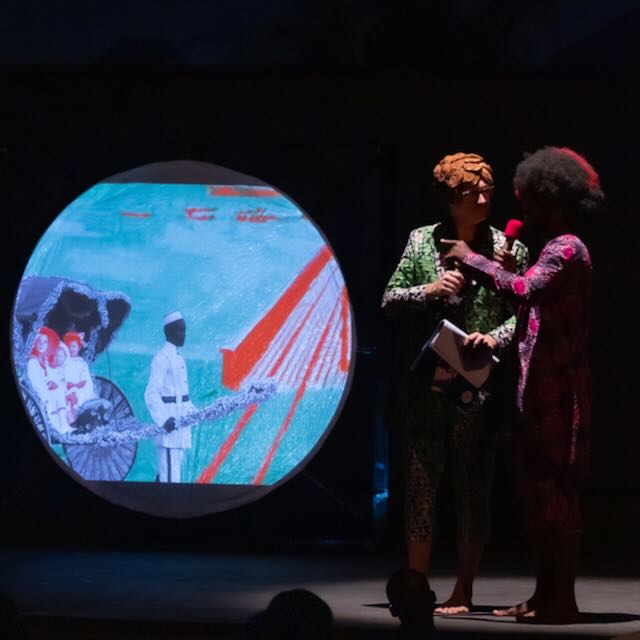
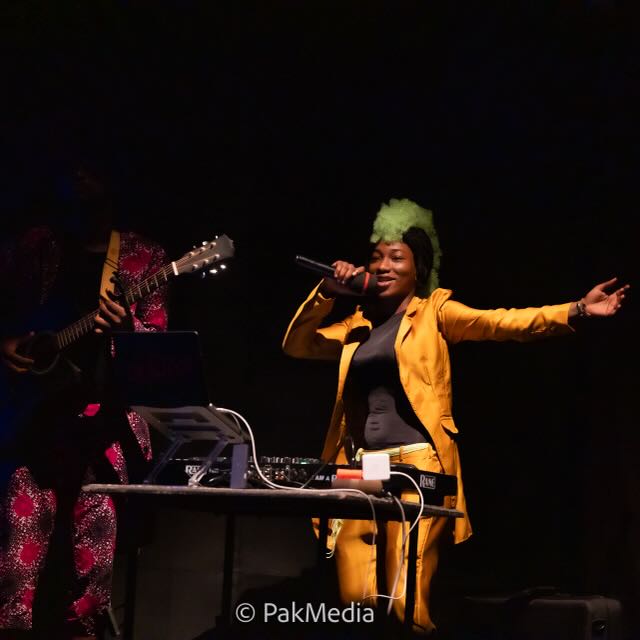
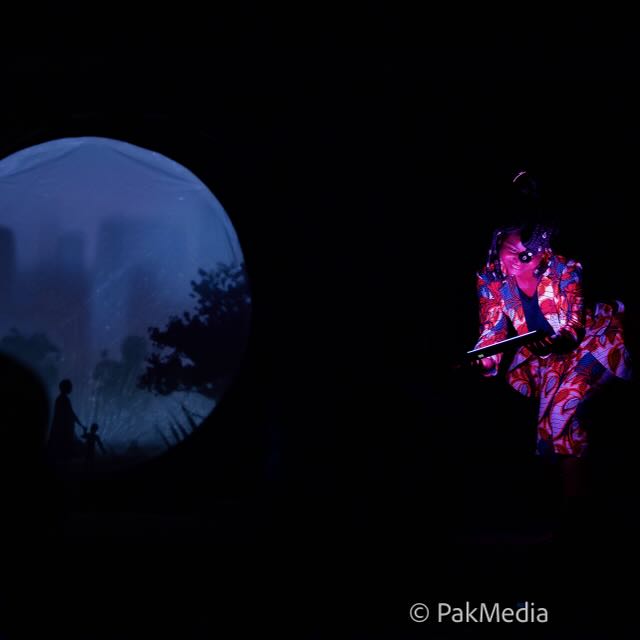
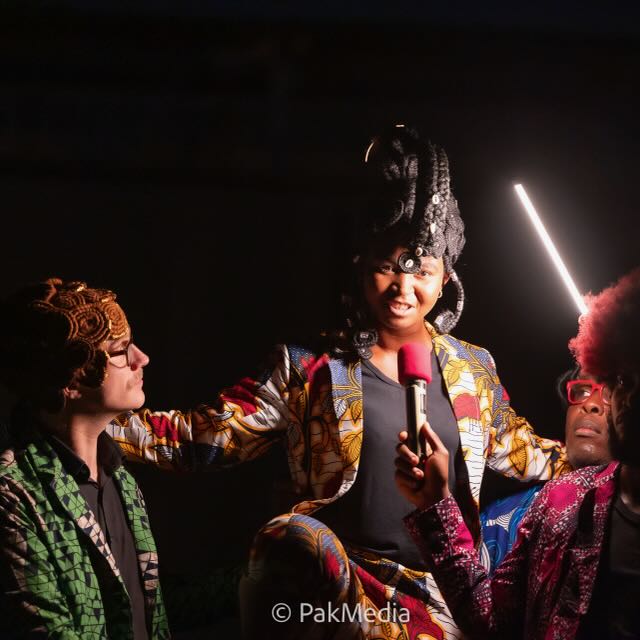
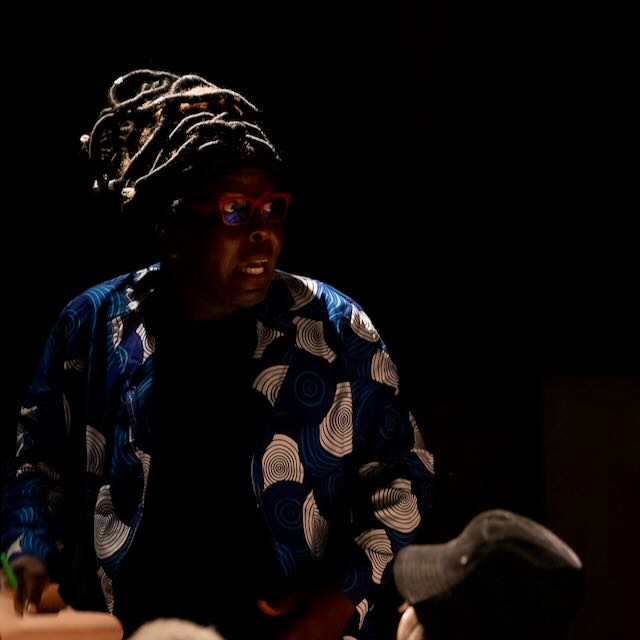

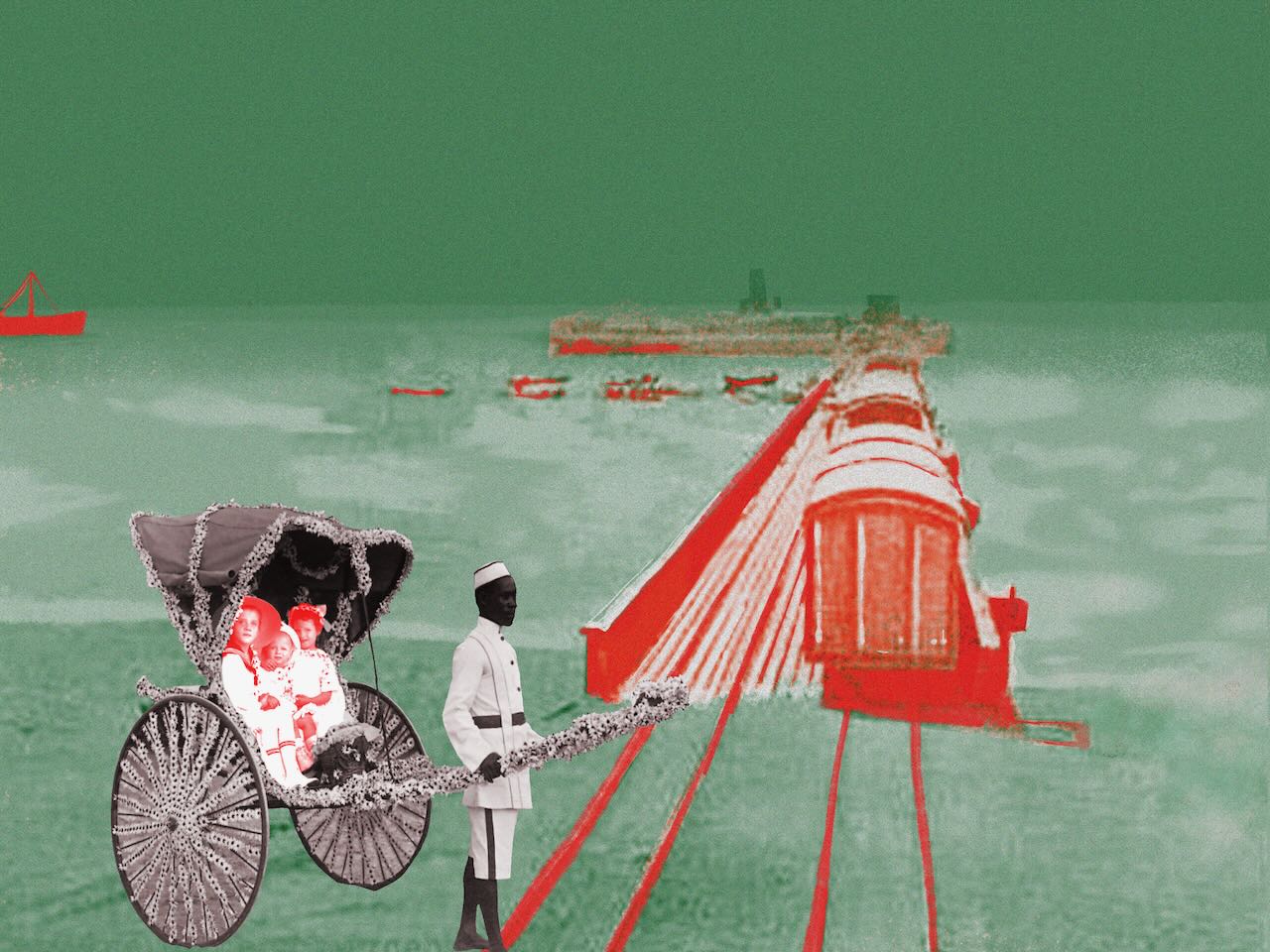
Photos: from the picture archive of the German Colonial Society / Artworks & Collages: Maria Lua Gomes Barrocas
Togo is disproportionately affected by the consequences of climate change. Some of these are: Air pollution (e.g. from uncontrolled waste incineration and emissions from transport and industry), flooding and coastal erosion (sea level rise), diseases/epidemics, storms and drought/heat. The traces of colonialism are still in evidence. Colonialism and climate (in)justice are only "two sides of the same coin", they are part, possibly cause and effect, of one and the same system.
Traditional stories on the subject:
TAKARA Pierrett tells the story of the "talking wood"
HOUNOU Ségnon tells the story of the "man on the island"
"The Mother who Turned to Dust" a story of origins from Malawi interpreted from Inyalambi Amumba with illustrations from Maria Lua Gomes Barrocas
PARAISO Kokou tells the story of the "disappearing village".
Interviews on "climate justice":
Interview mit GOKA Mawuli Aktivist NGO: JVE Lomé
Interview mit SAIBOU Awa Activiste NGO: OPED Lomé
Parallel to the project in Togo, various artists and activists from Cameroon were also interviewed.
Interviews with Alice Christel Penda Herman Koh / Better World Cameroon Jean David Nkot Sunday Geofrey / Support Humanity Cameroon (SUHUCAM) Music: Sistah Sen "Sunshine"
Agbodrafo über die deutsche Kolonialzeit in Aneho / Togo.
Press:
TVT programme "La POZ" presented by Mrs Océane.
Radio contribution to the project.
PARTNER IN TOGO
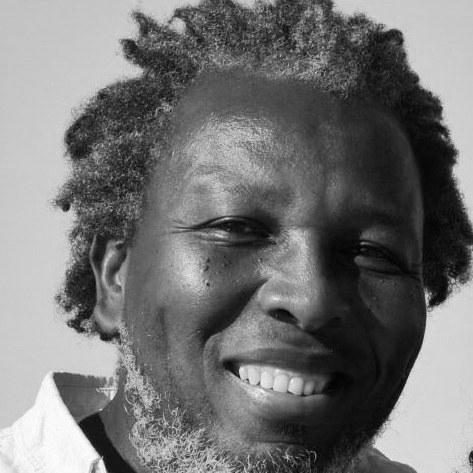
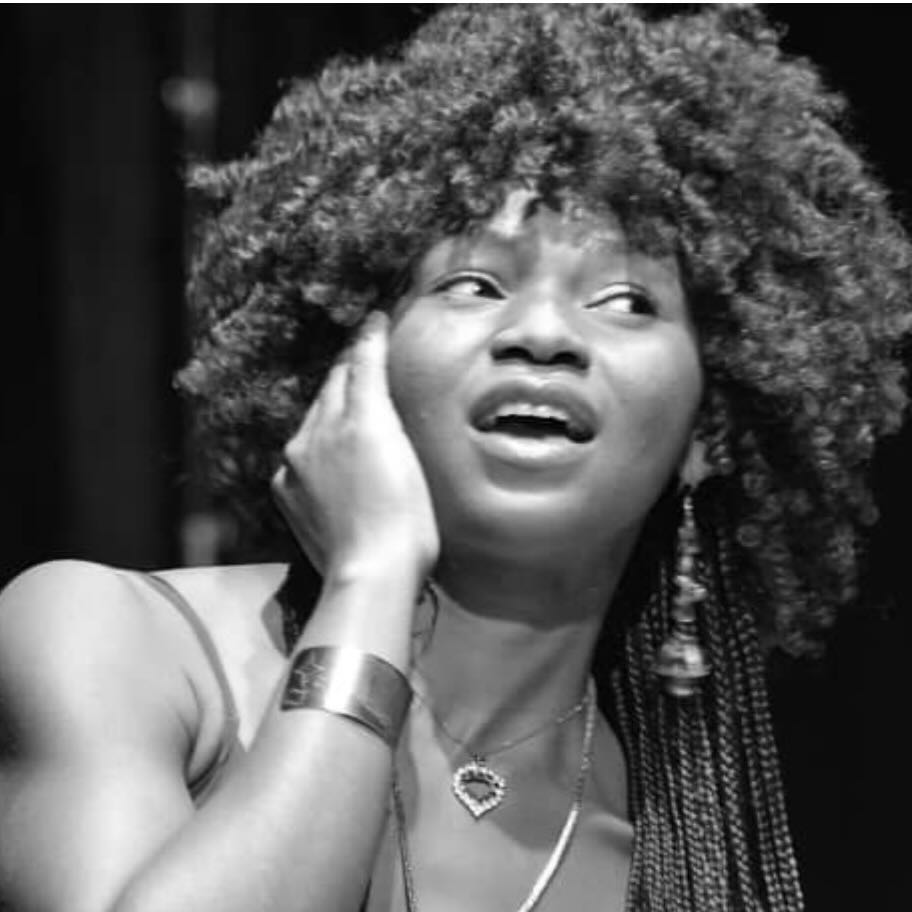
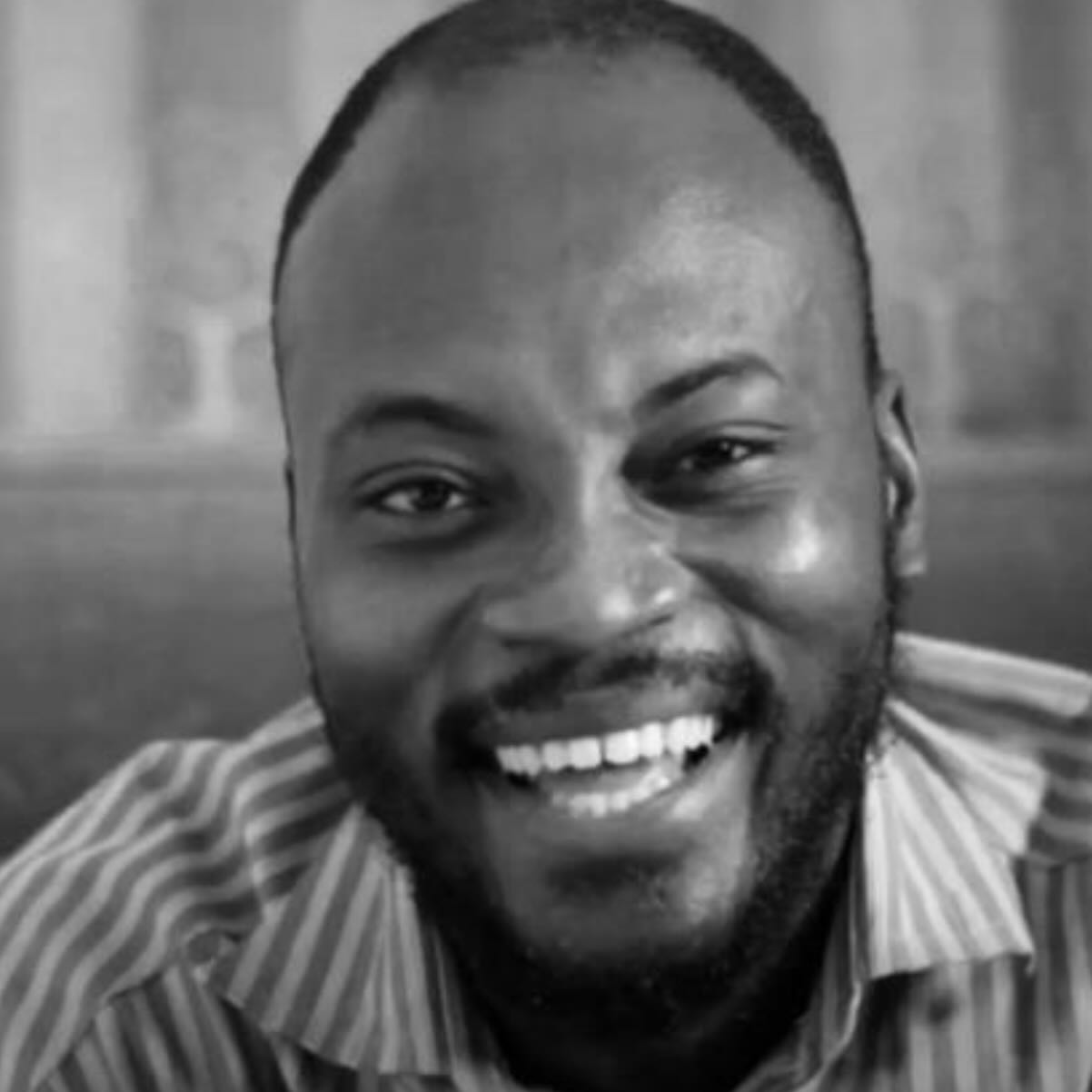
SAMUEL AKPENE WILSI
Born in Togo and having spent his childhood and schooling in Abidjan, Ivory Coast, he arrived in Germany in 1992. In 2006, his first play "Das ewige Lied" was financed by the Landesstiftung Baden-Württemberg in 2008. In 2010, he moved to Togo where he opened the "Wilsicom Productions" and produced several TV series broadcasted on Togolese and international channels. Samuel produced the series Chansonnettes bought in 2014 by Canal Plus and he received a special prize at the Festival Vues d'Afrique in Canada. In 2013 his play "Ectoplasme Faible" was awarded at the Grand Prix Afrique du Théâtre Francophone. The same year he worked with the French company “Issue de Secours” as director on their international project Passerelle. In 2018-2019, he lead the international production "The space that unites us" with the company “Cargo Théâtre” from Freiburg. It was presented in Togo and Germany. With “Le Theatre de la Nuit” a Belgian Theatre Group and “The Rwanda Arts Initiative” he works now on Babel Deluge, a project financed by the CITF (the Francophone Theatre Council).
PIERRETTE TAKARA
Togolese actress Pierrette Takara was born in Lomé on April 27, 1989. She caught the art bug at an early age, working as an actress in cultural associations such as Awawlui and Kadam-kadam. Her passion for theater grew once she was at the University of Lomé, where she combined art with studies in modern literature. In 2012, she passed the entrance exam for the Ecole Internationale de Théâtre du Bénin, graduating at the top of her class with a degree in theater arts and techniques.
Since then, she has been proving herself on stages in Africa, Europe and the Caribbean, where she has met trainers and directors including Sanvee ALouwasio, Alougbine Dine, Alain Hema, Rodrigue NORMAND, Philippe Delaigue, Alougbine Dine, Niedegger, Feliché Picco and Hervé Loichemol..... She participates in cultural events Festival international de Théâtre de la fraternité (FESTHEF), Festival Internationale de Théâtre du Bénin (FITHEB), festival jeune public La Ruche, Festival des Francophonies à Limoges.
GUY SEGNON HOUNOU
Born in Datcha in Togo, Guy Segnon Hounou began his career in television with the independent series "A la chez nous", broadcast on TVI, the Togolese national channel from 2014 to 2015. In 2016 he played the second role in the feature film "the deal" and in the short film the ballad of the hair dresser by Samuel A. Wilsi, selected at the short film festival of Vaulx en Vélin and the Ciné Poème festival of Bezons. He launches into stand up with the text "What's the hell do you tell me?" presented at the Goethe Institute of Lome and then plays in "On the road to Gariland", "Jomeo and Ruliette" and "Carnaval des mots" by Samuel A. Wilsi, represented in the last years at the Goethe Institute and the French Institute of Togo. In 2019, he played the lead role in the Ghanaian series "Guy Koffi in Accra" in Ghana. This was followed by several drama workshops led by Marc Agbedjidji's La Fabrique des Fictions.
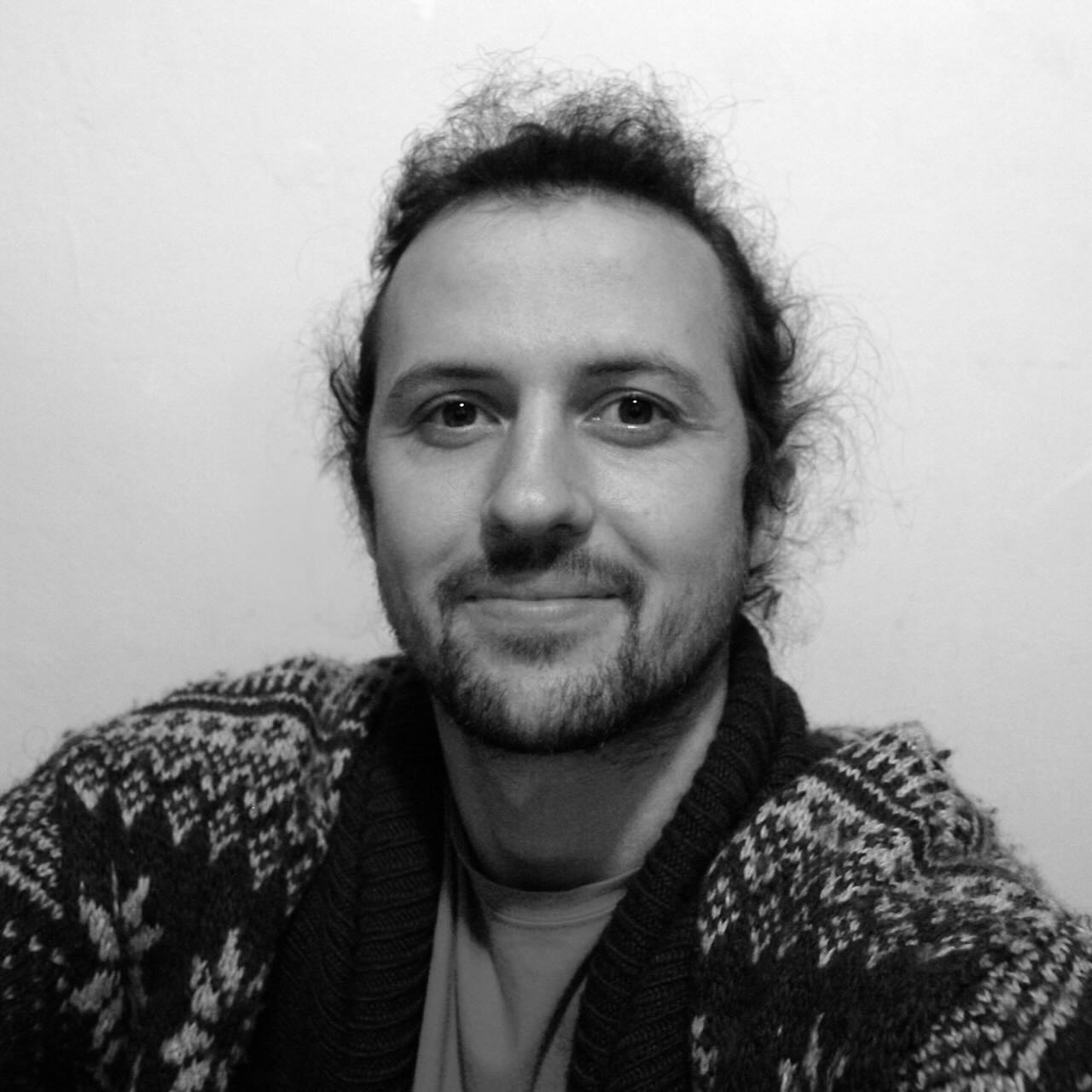
ROBERT RICKLI
is an interdisciplinary, collaborative artist and stage designer.
He has participated in exhibitions and led projects that move between art and activism.
In recent years, his work has revolved around lignite mining in Germany. He has helped organising several festivals as part of protest camps.
He has also worked with activists to artistically process their experiences, including a theatre performance in the village of Lützerath
(a village which was destroyed for the mining of brown coal), which was staged during its eviction in January 2023.
He recently spent 6 months in Cameroon, where he worked on a performance with local artists, which dealt with colonial continuities and interdependencies.

DJ DIPONNE
Diane Adjetey aka DJ Diponne was born on 7 July 1997 in Lomé and is one of the first music DJs from Togo.
After graduating from high school in 2017, she began to make a name for herself as a columnist and interviewer on the radio station Metropolys in the programme Maxi Joys.
Long before she became a DJ, she worked in web and social media and as a community manager.
She is the first female DJ in Togo. She was trained by Mickel Beats, resident DJ at Miami 228 and Marcelo Beach.
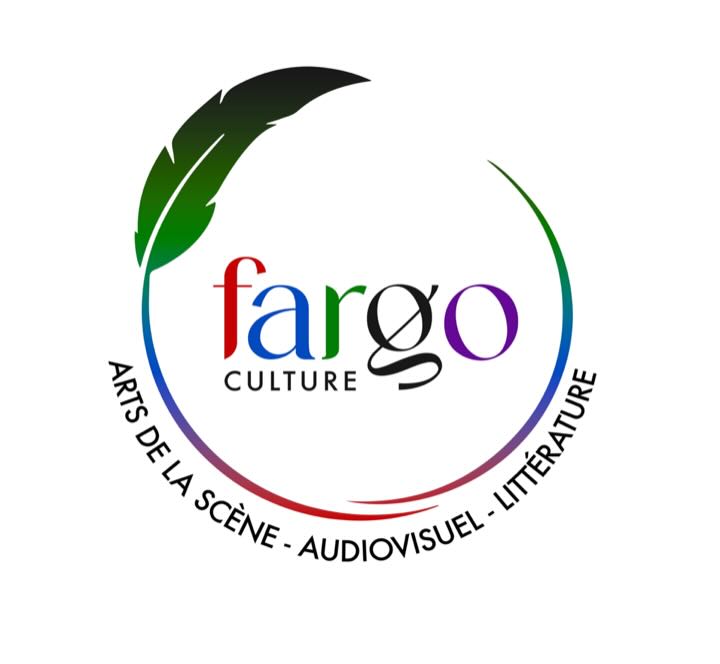
PARAISO Kokou / assistant & SONABEY Godwin stage design & RICKLY Robert stage design & YDA Style costume
APEDO Amah teacher-researcher & NYANOO Koffi assistant organisation & DJOBO Roukeya communication & GOKA Mawuli activist NGO: JVE Lomé & SAIBOU Awa activiste NGO: OPED Lomé & MONDE Alexandre storyteller & AZAMEDE teacher-researcher & MENSAH Gaskin Kpoti tourist guide Agbodrafo
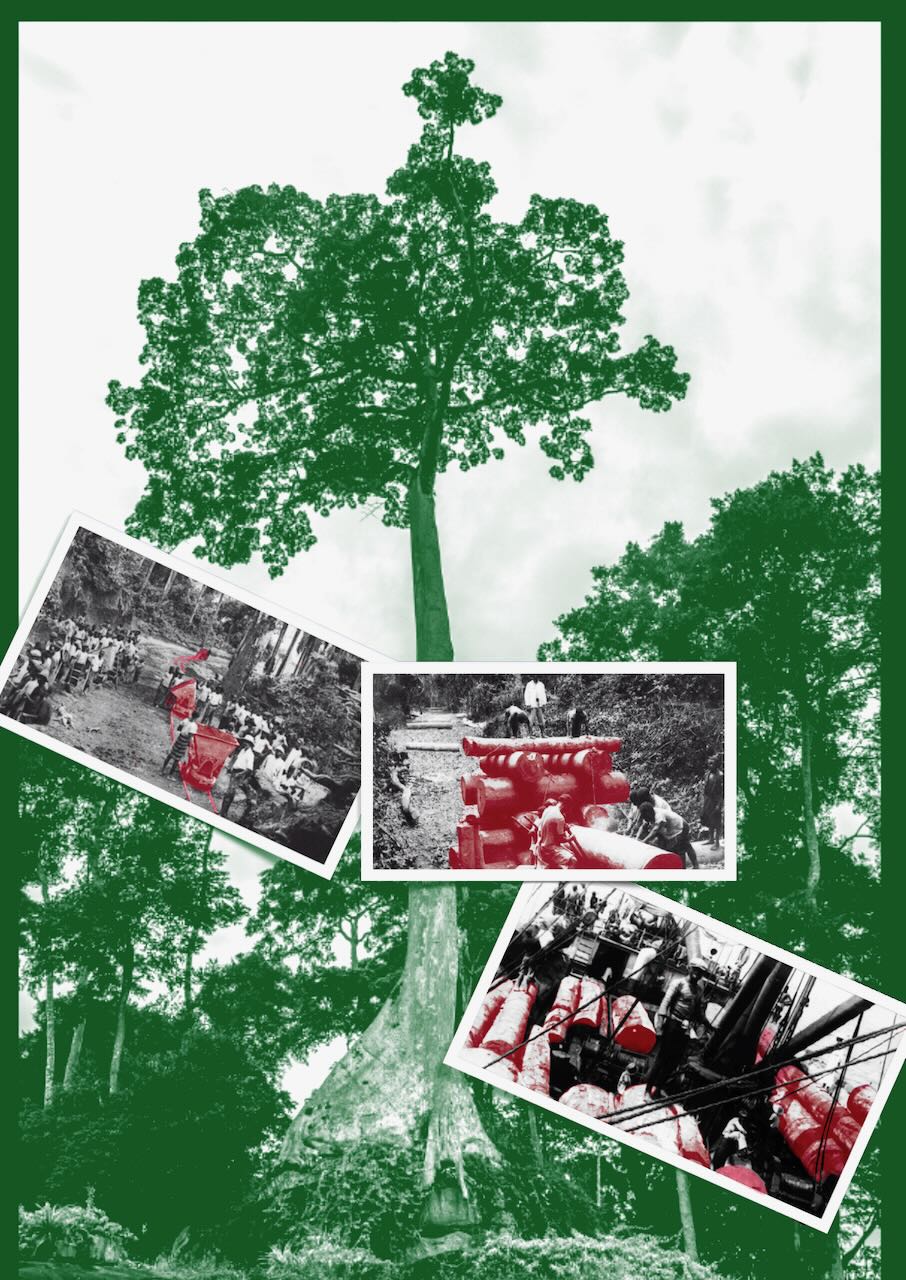
Photos: from the picture archive of the German Colonial Society / Artworks & Collages: Maria Lua Gomes Barrocas
Togo in the Anthropocene
We are in the Anthropocene, the age in which "humanity" has become the most important geological force (and is causing measurable global climate change in rock strata).
The term "Anthropocene" has been much discussed and criticised because, among other things, it does not take into account that it is not "humanity" as a whole that is causing the current crises and is responsible for the current crises and species extinction.
Alternative terms such as "Capitalocene" (which names the capitalist system and the capitalist class as the main culprit) or "Plantationocene" (which emphasises that the combination of slave labour and agricultural monoculture on the colonial plantations was a decisive prerequisite for the fossil industrialisation of Western Europe) are more specific.
With friendly support of:


